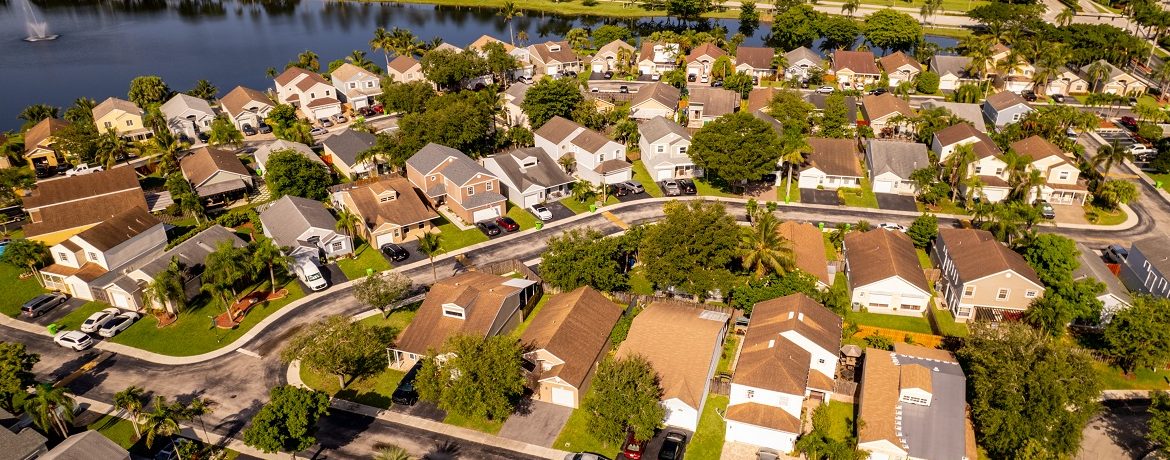As an HOA board member, you are responsible for overseeing your community's financial well-being. This role requires a delicate balance between maintaining essential services and managing the budget effectively, especially in the face of rising operational costs. With every decision, the impact on both the community's finances and resident satisfaction must be considered. A recent study shows that the median cost of HOA fees in more than 40 of the country’s most populated metro areas jumped by 5.7 percent in the past year. This uptick illustrates the growing financial pressures on communities nationwide.
When costs climb, how should you respond? Is increasing the dues the only viable option, or are there other strategies to explore first?
Many associations now take charge of their finances by focusing on what’s necessary versus the desirable extras. Here’s how:
- Prioritizing immediate, necessary expenditures while deferring less critical ones until they become financially viable.
- A thorough review of vendor contracts and utility expenses can often reveal additional opportunities for cost savings.
Simple changes, like adjusting the settings on communal facilities or upgrading to energy-efficient fixtures, can significantly reduce utility expenses without sacrificing quality of life.
The blog aims to provide a comprehensive guide for HOA board members on effectively communicating HOA fee increases to residents, ensuring a smoother transition and maintaining trust within the community.
Understanding Homeowners Association (HOA) Fees
Homeowners Association (HOA) fees are regular payments made by certain residential property owners to their respective homeowner's associations. These fees are essential for maintaining and improving shared spaces and services within a community.
These fees cover the costs associated with maintaining common areas and amenities in condominiums, apartments, and planned community neighborhoods. While these fees are most commonly associated with condominium owners, they can also apply to single-family homes within certain neighborhoods.
What Do HOA Fees Cover?
|
|
Description |
|
Maintenance of Common Areas |
This includes lobbies, patios, landscaping, and elevators. |
|
Utility Costs |
Fees often cover common utility services such as water and sewer charges and garbage disposal. |
|
Amenities |
Maintenance of community amenities like swimming pools, tennis courts, clubhouses, or neighborhood parks. |
Special Assessments
Apart from regular monthly dues, HOA fees can also include special assessments. These are levied to cover significant expenses that exceed the association's reserve funds—money set aside for major repairs or emergencies, such as replacing a roof or installing a new elevator.
The Common Reasons for HOA Fee Increases

Here’s a detailed look at why HOA fees might increase and the legal considerations involved.
Infrastructure Maintenance and Upgrades
HOA fees may increase to fund repairs and improvements in common areas such as pavements, roofs, and community pools. Regular maintenance ensures these facilities remain functional and aesthetically pleasing, which helps protect property values.
Increased Service Costs
HOA fees may rise as costs for landscaping, security, snow removal, and cleaning services increase. This can result from inflation, changes in vendor contracts, or enhanced service requirements to meet community needs.
Emergency Funds Replenishment
Rebuilding the reserve fund for unexpected repairs or emergencies, such as storm damage or sudden structural failures, increases HOA fees. Adequate reserve funds ensure the HOA can handle sudden, large expenses without imposing hefty special assessments on residents.
Legal or Insurance Cost Increases
These are costs associated with legal counsel for the HOA or increases in insurance premiums to protect against liabilities. Legal and insurance protections are crucial for managing community risks, covering everything from property damage to lawsuits against the HOA.
Navigating the Ups and Downs: HOA Fee Increase Guidelines
When considering an increase in HOA fees, it is crucial to follow established HOA fee increase guidelines to ensure the process is transparent and fair. Here are concise steps to guide the process:
- Review Governing Documents: First, check the HOA’s bylaws and covenants to determine the rules and limitations for implementing fee increases.
- Assess Financial Needs: Conduct a thorough review of the HOA's financial status and future needs. This should include the current budget, upcoming expenses, and a capital improvement assessment to determine the reserve funds needed. Such an assessment is essential for planning and ensuring financial stability for future projects and maintenance
- Board Approval: Ensure the fee increase proposal is discussed and approved during a duly noticed board meeting, where all members can weigh in.
- Communicate Clearly: Once approved, communicate the changes to all residents, explaining the reasons, benefits, and the effective date of the increase.
- Provide Feedback Opportunities: Allow residents to voice their concerns and questions, either through meetings, written communications, or feedback forms.
Understanding these factors can help residents see the necessity behind HOA fee increases and promote a smoother implementation process by ensuring all legal requirements are met and communicated clearly.
Effective Strategies for Communicating HOA Fee Increases to Residents

Communicating increased HOA dues effectively is crucial for maintaining trust and cooperation within a condo community. Here are some best practices to ensure the process is smooth and well-received by all residents.
Notify Residents Early
Choose a time to announce the increase when it can receive adequate attention from members. Avoid busy periods like major holidays or summer vacations when many people may be away.
Inform residents about any increase in dues as soon as possible. Early notification allows them to adjust their budgets accordingly and demonstrates respect for their financial planning.
Provide all necessary details, including the effective date of the increase and any important deadlines. Regular reminders as the date approaches can help keep everyone well-informed.
Use Multiple Communication Channels
Communicate the dues increase using various channels, such as emails, community newsletters, and meetings. This ensures that the message reaches everyone and reinforces the community's commitment to transparency.
Explain the Reasons for the Increase
Articulate the reasons for HOA fee increases clearly, detailing how the funds will be utilized for community benefit and how they will be used for maintenance, repairs, or improvements.
Transparency in where the money is going helps build trust and understanding among members. It reassures them that the increases are justified and necessary for the community's well-being. Highlight how these enhancements will prevent costly problems in the future, improve property values, and enhance residents' quality of life.
Compare with Previous Budgets and Expenditures
Show how previous funds were allocated and the outcomes of those expenditures.
Comparing current needs with past budgets helps members see the evolution of community costs and the rationale behind financial decisions, which can facilitate acceptance of new fees.
Provide Examples and Detailed Documentation
Share examples of past improvements funded by dues and their impact on the community. Outline planned projects that the increased dues will fund, helping residents see the tangible benefits of their contributions.
Provide detailed financial reports and projections that justify the need for increased funds. This can help build further trust among residents.
Avoid Technical Jargons
Use plain language that is easily understandable by all community members, regardless of their familiarity with real estate or financial terms. Ensuring accessible information helps gain widespread acceptance and compliance and fosters a positive community atmosphere.
Acknowledge the Impact of Increases
Recognize that fee increases can be a burden and openly address members' concerns about the additional financial load.
Demonstrating empathy helps build solidarity and trust within the community. It shows that the association cares about the residents’ well-being and does not focus solely on the financial aspects.
Highlight the Long-term Benefits
Illustrate how the increased fees will lead to improvements that benefit all members, such as enhanced property values, better amenities, and increased safety.
Members who understand the long-term advantages of fee increases, such as enhanced property values and improved community facilities, are more likely to view the increases favorably and support the initiative.
Offer Financial Flexibility
Introduce options for payment plans to ease the burden of increased dues. Clearly explain how residents can use these plans to manage their payments more comfortably. It is important to note that, for most cases, payment plan options are only offered to homeowners who can demonstrate financial hardship.
Maintain a Positive Outlook
Keep the communication tone positive and constructive. Be available to answer questions and discuss concerns, showing empathy and understanding towards residents' perspectives.
Emphasize the positive changes the increased dues will bring to the community. Focusing on the benefits and maintaining an optimistic outlook can create community and cooperation.
By following these best practices, HOAs can effectively manage and communicate HOA fee increases in a way that builds understanding and maintains the community's cohesion. This approach informs and engages residents in developing and enhancing their living environment.
How Can You Make Managing HOA Finances Less Stressful?
Balancing the collection of increased HOA fees with empathy is crucial for maintaining a positive and engaged community atmosphere. HOAs must not only recover dues effectively but also do so respectfully and legally. However, understanding the complexities of fee increases and community management can be challenging.
ManageCasa provides an ideal solution by offering specialized tools and support to streamline operations, ensure compliance, and foster a thriving, harmonious neighborhood. With ManageCasa, HOAs can simplify communicating and implementing fee increases, ensuring that all procedures are followed correctly and that community members are informed and treated fairly. This helps maintain positive relationships within the community while ensuring the financial health of the HOA is secured.
Take Control of Your HOA Finances with ManageCasa
Managing an HOA involves meticulous attention to financial details, especially when handling fee increases. ManageCasa simplifies these responsibilities by providing a comprehensive, all-in-one platform to streamline HOA operations. With integrated payments, accounting, budgeting, and community management tools, ManageCasa saves time, reduces errors, and supports smoother, more efficient processes.
Here’s why you should entrust ManageCasa with managing your HOA community:
- Streamlined Administration
- Financial Tools
- Maintenance and Operations
- Communication Channels
- Reporting and Analytics
Ready to transform your HOA management? Connect for a DEMO today!



